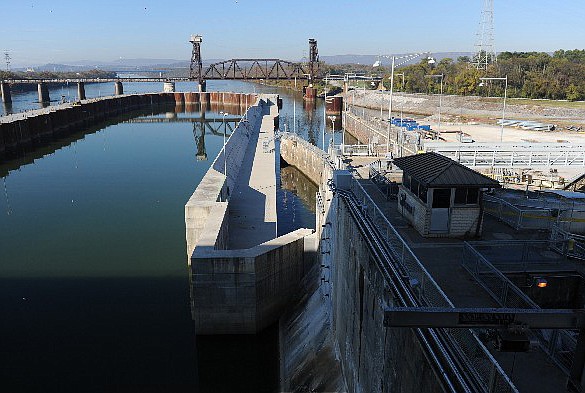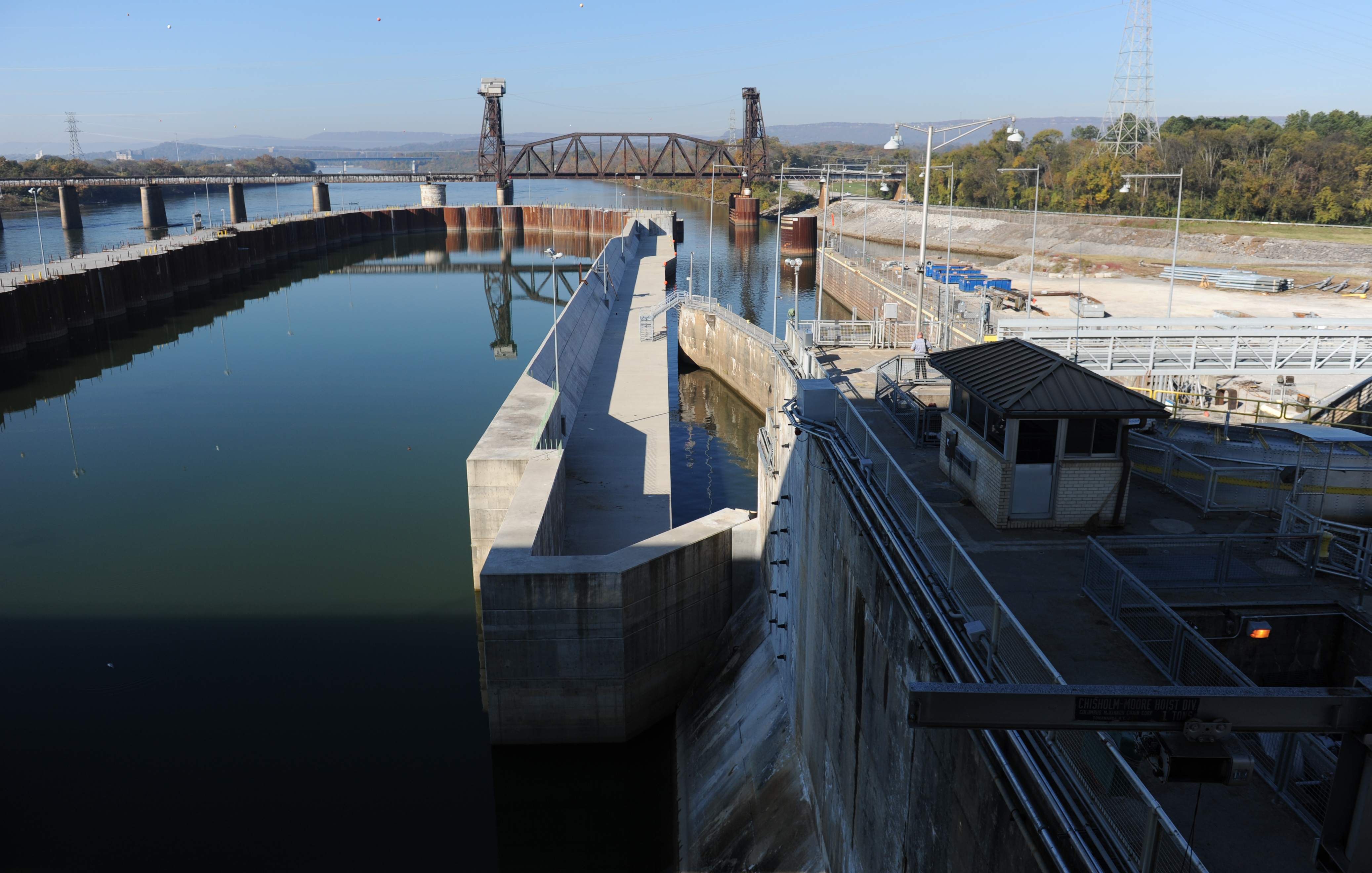Construction of a new Chickamauga Lock could be revived next year if Congress includes an industry-backed plan to raise the fuel tax on barges as part of the spending measures set to be reviewed next month when legislators return to Washington after the Nov. 4 elections.
U.S. Sen. Lamar Alexander, R-Tenn., said he plans to push for such a fuel tax increase and try to attach it to whatever spending bill he can in the final days of the 113th Congress.
Alexander said such a "user fee," as he calls the higher fuel tax, would pump needed funds in the Inland Waterways Trust Fund. Without more money in the trust fund, the Army Corps of Engineers probably won't have enough funds to restart work next year on the $680 million replacement lock at the Chickamauga Dam, which ran out of money two years ago after the Corps had spent about $200 million on the project.
Alexander said he is working with U.S. Sen. Bob Casey, D-Pa., a member of the Senate Finance Committee, to find a means to increase the federal diesel tax on barges. The Waterways Council Inc., an industry trade group, has recommended raising the current 20-cents-per-gallon diesel tax for barge operators by 6 to 9 cents more a gallon.
"We're going to look for any train running through town to put this on," Alexander said during a meeting with editors of the Times Free Press last week. "Under (Senate Majority Leader) Harry Reid the trains haven't been running and not much is happening in the United States Senate because he won't let anything be voted on. But this probably will come up and it's got some chance of success."
The Inland Waterways Trust Fund is equally funded by barge fuel taxes and federal appropriations. Most of the fund has been absorbed in recent years by the Olmsted Lock and Dam on the Ohio River, where delays and cost overruns have pushed up the expense of the new lock and dam to more than $3 billion.
The new lock at the Chickamauga Dam could handle up to eight barges at the same time. The current lock, which was first opened in 1940 and suffers from "concrete growth" in its chambers, can only handle one barge at a time.
Without a new lock built in the near future, the existing Chickamauga Lock could be forced to permanently shut down due to growing problems in the rock aggregate used in the 1930s to build the river chamber.
"For the life of me, I can't understand why anybody would object to a user of the lock volunteering to pay a fee to make it easier for everybody to go through quicker," Alexander said. "The barge industry is telling us they are tired of waiting eight hours to go through the lock with one barge. We'd like to be able to have a bigger lock that allows us to go through in a couple of hours with multiple barges at a time. All of the fishing boats and other recreational boaters would go through too" without any increase in their fuel taxes.
But many members of Congress are reluctant to approve the fuel tax increase requested by the barge industry because it looks like a tax increase and a violation of their pledge to vote against any tax increase.
"The House Republicans hide under the table when it looks like it might be a tax and I don't like it," Alexander said. "I'm not for raising taxes, but I am for allowing barge companies to pay to go through a lock that they use. That seems to me to be common sense and I think if we can explain that to people then it will pass."
Alexander insists the higher fuel tax is not a tax increase like what many members of Congress have vowed to oppose.
"There's a big difference between raising your individual income tax and letting barge companies pay a higher user fee to benefit the entire region by completing the lock," he said.
Earlier this year, Congress approved a reform of the Inland Waterways Trust Fund to provide more taxpayer support to finish the Olmsted project and to designate specific projects, including the replacement lock at the Chickamauga Dam, for future funding when it becomes available.
Alexander said with such changes, funding should be available for the Chickamauga Lock within two to three years.
"But it will go much more rapidly if the big barge companies are allowed to increase their user fee," he said. "That will speed up the lock and avoid the dire consequences of the lock closing, which is a possibility."
Without the lock, experts estimate another 150,000 trucks a year would travel I-75 carrying goods now shipped along the Tennessee River.
"That would be bad for Chattanooga, but it would be worse for the Knoxville and Oak Ridge area and the rest of East Tennessee," Alexander said.
Cline Jones, executive director of the Tennessee River Valley Association, which represents barge operators who use the Tennessee River, said the fuel tax increase is preferable to a lockage fee proposed by the Obama administration. Jones worries that if barge operators have to pay fees at every Tennessee River lock as the White House has proposed, "our shipping costs could become too high to remain competitive."
"We have supported a fuel tax increase on barges for the past three years to make sure there is enough money to get work going again at the Chickamauga and Kentucky locks (on the Tennessee River)," Jones said. "The lockage fee proposed by the administration would be almost like closing the river with all the costs we would have to pay."
Alexander said if the higher barge tax isn't taken up before the end of the year in the lame duck session, it will come up next year in the Senate, which he hopes will then be under Republican control. With both chambers controlled by the GOP, Alexander contends, Republicans will have to take responsibility for solving problems like the stalled Chickamauga Lock.
The lame duck session of Congress will reconvene on Nov. 12 following the elections to finalize the budget for fiscal 2015, among other items.
Contact Dave Flessner at dflessner@timesfreepress.com.

